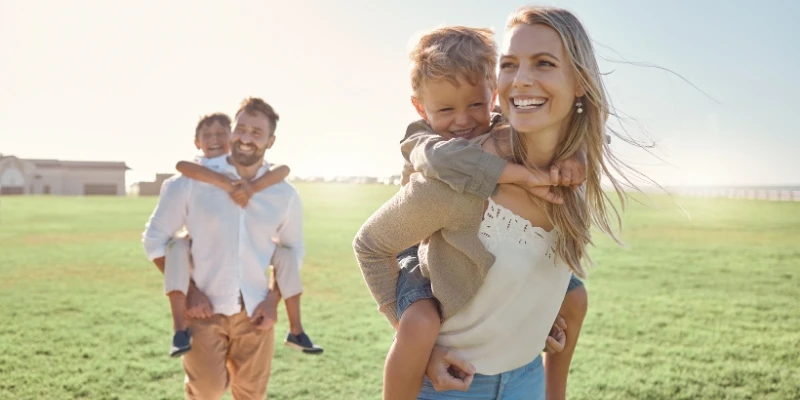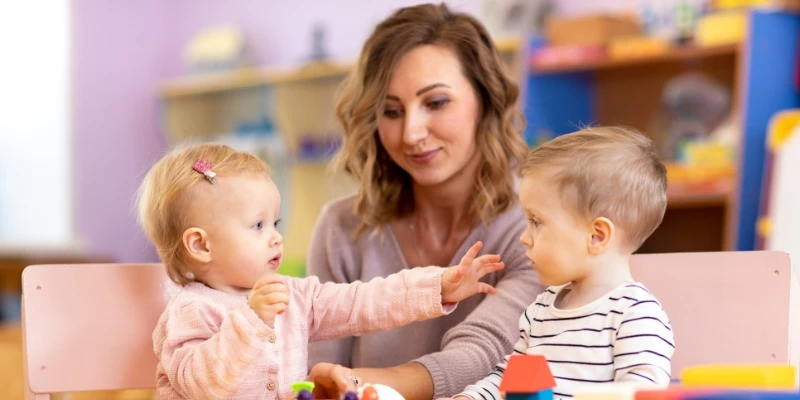
Early Years Learning Framework
The Complete EYLF Guide for Parents and Educators
The Early Years Learning Framework (EYLF) is Australia’s national curriculum framework for early childhood education. It guides how educators support young children’s learning, development, and wellbeing from birth to five years of age — and sometimes beyond, in early school transitions.
Whether you’re a parent choosing a childcare service or an educator designing high-quality learning programs, understanding the Early Years Learning Framework is essential. It defines what quality early education looks like, how it should be delivered, and the outcomes children should achieve through play-based, holistic learning.
What Is the Early Years Learning Framework?
Introduced as part of the Australian Government’s National Quality Framework (NQF), the Early Years Learning Framework provides a national approach to early childhood education and care. It ensures that regardless of where a child lives or attends care, they have access to programs that are inclusive, high quality, and focused on lifelong learning.
The EYLF isn’t a rigid curriculum — it’s a flexible guide that empowers educators to design programs that respond to the unique interests, strengths, and needs of each child. It recognises that children learn best through play, relationships, and exploration, and it places families at the centre of the learning process.
The Vision of the Early Years Learning Framework
At the heart of the EYLF is a clear vision:
“All children experience learning that is engaging and builds success for life.”
This vision reflects the belief that early childhood is a critical time for development. The framework supports children to become confident learners, effective communicators, and active participants in their communities. It also acknowledges the diversity of Australian society and the importance of cultural identity, family involvement, and community connections in shaping early learning experiences.

The Structure of the Early Years Learning Framework
The Early Years Learning Framework is shaped by a central vision — Belonging, Being and Becoming. This vision describes how children experience and engage with the world, and it guides everything that happens in early learning environments.
Under this vision, the EYLF is made up of three interconnected elements:
- Principles – Foundational beliefs that underpin quality early education.
- Practices – The teaching approaches educators use to bring learning to life.
- Learning Outcomes – The key areas of knowledge, skills, and dispositions children should develop.
Together, the vision and the three elements provide a holistic, play-based approach to early childhood education. They ensure that programs are purposeful, responsive and designed to support every aspect of a child’s learning, wellbeing and identity.
Belonging, Being and Becoming in the Early Years Learning Framework
Belonging, Being and Becoming is the central vision of the Early Years Learning Framework. It recognises that children learn and grow through secure relationships, meaningful experiences, and supportive environments. Belonging emphasises identity and connection, Being honours childhood in the present, and Becoming focuses on children’s learning, growth and future possibilities.
This vision guides how educators view each child, how they build partnerships with families, and how they create environments that nurture wellbeing, confidence, curiosity and a strong sense of self.
Explore in detail: Belonging, Being and Becoming (EYLF Vision)
The Principles of the Early Years Learning Framework
The Early Years Learning Framework Principles are the core beliefs that guide educators’ work with children, families, and communities. They include ideas such as building secure relationships, forming partnerships with families, holding high expectations for every child, respecting diversity, and reflecting on practice.
These principles shape the way educators approach every interaction and decision — from curriculum planning to how they communicate with families.
Explore in detail: Early Years Learning Framework Principles
The Practices of the Early Years Learning Framework
The Early Years Learning Framework Practices are the methods and strategies educators use to put the principles into action. They describe how learning environments are created, how intentional teaching is delivered, and how cultural competence and assessment support children’s development.
These practices focus on the importance of play-based learning, responsiveness to children’s interests, and building strong foundations for future learning.
Explore in detail: Early Years Learning Framework Practices
The Outcomes of the Early Years Learning Framework
The Early Years Learning Framework Outcomes describe the key areas of development and learning children should experience. They focus on identity, wellbeing, communication, confidence, and connection — and they are intentionally broad so educators can tailor learning to each child’s strengths and needs.
These outcomes give families and educators a shared language to talk about children’s progress and achievements.
Explore in detail: Early Years Learning Framework Outcomes
The Importance of the Early Years Learning Framework
The EYLF plays a vital role in shaping the quality and consistency of early education across Australia. Here’s why it matters:
- Consistency: It ensures that all children — regardless of location, background, or type of service — have access to quality learning experiences.
- Holistic Development: It supports every aspect of a child’s growth, including cognitive, social, emotional, physical, and cultural development.
- Family Partnerships: It recognises parents and carers as the most important people in a child’s life and encourages strong collaboration between families and educators.
- Cultural Inclusion: It celebrates diversity and integrates Aboriginal and Torres Strait Islander perspectives as central to Australian early education.
- Lifelong Learning: It builds the foundational skills, attitudes, and dispositions children need to succeed at school and beyond.

How Families Can Use the Early Years Learning Framework
Understanding the EYLF can help families become active partners in their child’s learning. You can:
- Ask educators how their program reflects the Early Years Learning Framework.
- Discuss how your child’s interests and experiences are built into the curriculum.
- Use the framework’s language (such as outcomes or learning dispositions) to talk about progress.
- Support learning at home by extending on experiences and interests your child engages with in care.
EYLF and the NQS
The EYLF is closely linked to the National Quality Standard (NQS), which sets the benchmarks for high-quality education and care in Australia. Services are assessed against the NQS, and demonstrating alignment with the EYLF is one of the key indicators of quality.
A strong understanding of the framework can also help families interpret assessment and rating reports and make more informed decisions when choosing a childcare service.
EYLF Key Takeaways
The Early Years Learning Framework is Australia’s national curriculum guide for early childhood education.
It is built around three key elements: Principles, Practices, and Learning Outcomes.
The EYLF supports holistic, play-based learning and strong family partnerships.
Understanding the framework empowers parents and helps educators plan high-quality learning experiences.
Explore the EYLF Principles, EYLF Practices, and EYLF Outcomes pages to dive deeper into how the EYLF works in practice.